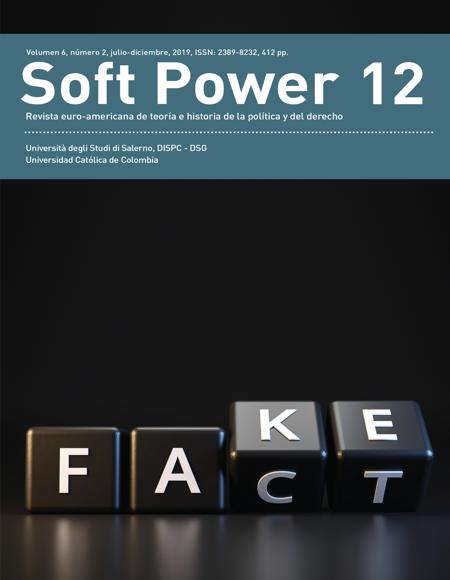Resumen
Este artículo explora la crítica de Bruno Latour a la teoría crítica contemporánea. Según Latour, las concepciones posestructuralistas de la investigación crítica son cada vez más obsoletas. En nuestra era “postfactual”, intentar exponer los hechos como el resultado de procesos de construcción social cargados de poder acaba haciendo el juego de los oscurantistas anti-científicos. Sin embargo, esto no quiere decir que uno deba optar por una noción reduccionista de objetividad. En cambio, Latour propone una nueva forma de realismo crítico. Si bien estamos de acuerdo con Latour sobre la necesidad de ampliar nuestro paradigma epistemológico, consideramos que su crítica al posestructuralismo es injusta y exagerada. Además, sostenemos que ella no tiene en cuenta la relación entre epistemología, poder y subjetividad. Dado que Foucault, por otro lado, tiene éxito donde Latour se queda corto e investiga esta relación, la suya es una forma de crítica que sigue siendo crucial para abordar la crisis actual de la verdad.

Citas
Butler, J. (1990). Gender Trouble. Feminism and the Subversion of Identity. London/New York: Routledge.
Butler, J. (1993). Bodies That Matter. On the discursive limits of ‘sex’. London/New York: Routledge.
Foucault, M. (1982). The Subject and Power. Critical Inquiry 8, 4, pp. 777-795.
Foucault, M. (1997). What is Critique? In The Politics of Truth. Los Angeles: Semiotext(e), 41-82.
Foucault, M. (2001). Fearless Speech. Los Angeles: Semiotext(e).
Foucault, M. (2002). Power: The Essential Works of Michel Foucault 1954-1984. London: Penguin.
Foucault, M. (2008). Psychiatric Power. Lectures at the Collège de France 1973-1974. Basingstoke: Palgrave.
Foucault, M. (2010). The Government of Self and Others. Lectures at the Collège de France 1982-1983. Basingstoke: Palgrave.
Gabriel, M. (2016). Wider die postmoderne Flucht vor den Tatsachen. NZZ online, 19.6.2016. https://www.nzz.ch/feuilleton/fuenf-jahre-neuer-realismus-wider-diepostmoderne-flucht-vor-den-tatsachen-ld.89931.
Gehring, P. & A. Gelhard (Ed.) (2012). Parrhesia. Foucault und der Mut zur Wahrheit. Zurich: diaphanes.
Gros, F. (2011). Course Context. In M. Foucault: The Courage of the Truth. The Government of Self and Others II. Lectures at the Collège the France 1983-1984, pp. 334 - 358. Basingstoke: Palgrave.
Hampe, M. (2016). Katerstimmung bei den pubertären Theoretikern. Die Zeit 19.12.2016, 48.
Haraway, D. (1991). Simians, Cyborgs, and Women. The Reinvention of Nature. New York: Routledge.
Heidegger, M. (1971a). The Thing. In Poetry, Language, Thought. pp. 161-184. New York: Harper & Row.
Heidegger, M. (1971b). Building Dwelling Thinking. In Poetry, Language, Thought. pp. 141-160. New York: Harper & Row.
Heidegger, M. (1985). Being and Time. Oxford: Blackwell.
Heidegger, M. (2010). Country Path Conversations. Bloomington: Indiana UP.
Latour, B. (2000). Pandora’s Hope. Essays on the Reality of Science Studies. Cambridge, Mass.: Harvard UP.
Latour, B. (2004). Why Has Critique Run out of Steam? From Matters of Fact to Matters of Concern. Critical Inquiry 30, pp. 225-248.
Latour, B. (2012). An Inquiry into Modes of Existence. An Anthropology of the Moderns. Cambridge, Mass.: Harvard UP.
Moran, L. (1993). Evolution is a Fact and a Theory. The TalkOrigins Archive. Exploring the Creation/Evolution Controversy, 22.1.1993, http://www.talkorigins.org/faqs/evolution-fact.html.
Morris, H. M. (Ed.) (1974. Scientific Creationism. Prepared by the technical staff and consultants of the Institute for Creation Research. San Diego: Creation-Life Publishers.
Pennock, R. (2010). The Postmodern Sin of Intelligent Design Creationism. Science & Education, 19, 6-8, June 2010, pp. 757-778.
Posselt, G. & M. Flatscher (2016). Sprachphilosophie. Eine Einführung. Vienna: facultas/UTB.
Posselt, G. & S. Seitz (2018). Sprachen des Widerstands. Zur Normativität politischer Artikulation bei Foucault und Rancière. In O. Marchart & R. Martinsen (Eds.), Foucault und das Politische. Transdisziplinäre Impulse für die politische Theorie der Gegenwart. Wiesbaden: Springer.
Reynolds, J. M. (2010) On Creation and Post-Modernism. First Things, 18.32010, https://www.firstthings.com/blogs/firstthoughts/2010/03/on-creation-and-postmodernism.
Rheinberger, H.J. (1992). Experiment, Differenz, Schrift. Zur Geschichte epistemischer Dinge. Marburg an der Lahn: Basilisken-Presse.
Whitehead, A. N. (1995). The Concept of Nature. The Tanner Lectures Delivered in Trinity College November 1919. Cambridge: Cambridge UP.
Wikipedia. Objections to evolution. Last revised 3.5.2018, https://en.wikipedia.org/wiki/Objections_to_evolution.














